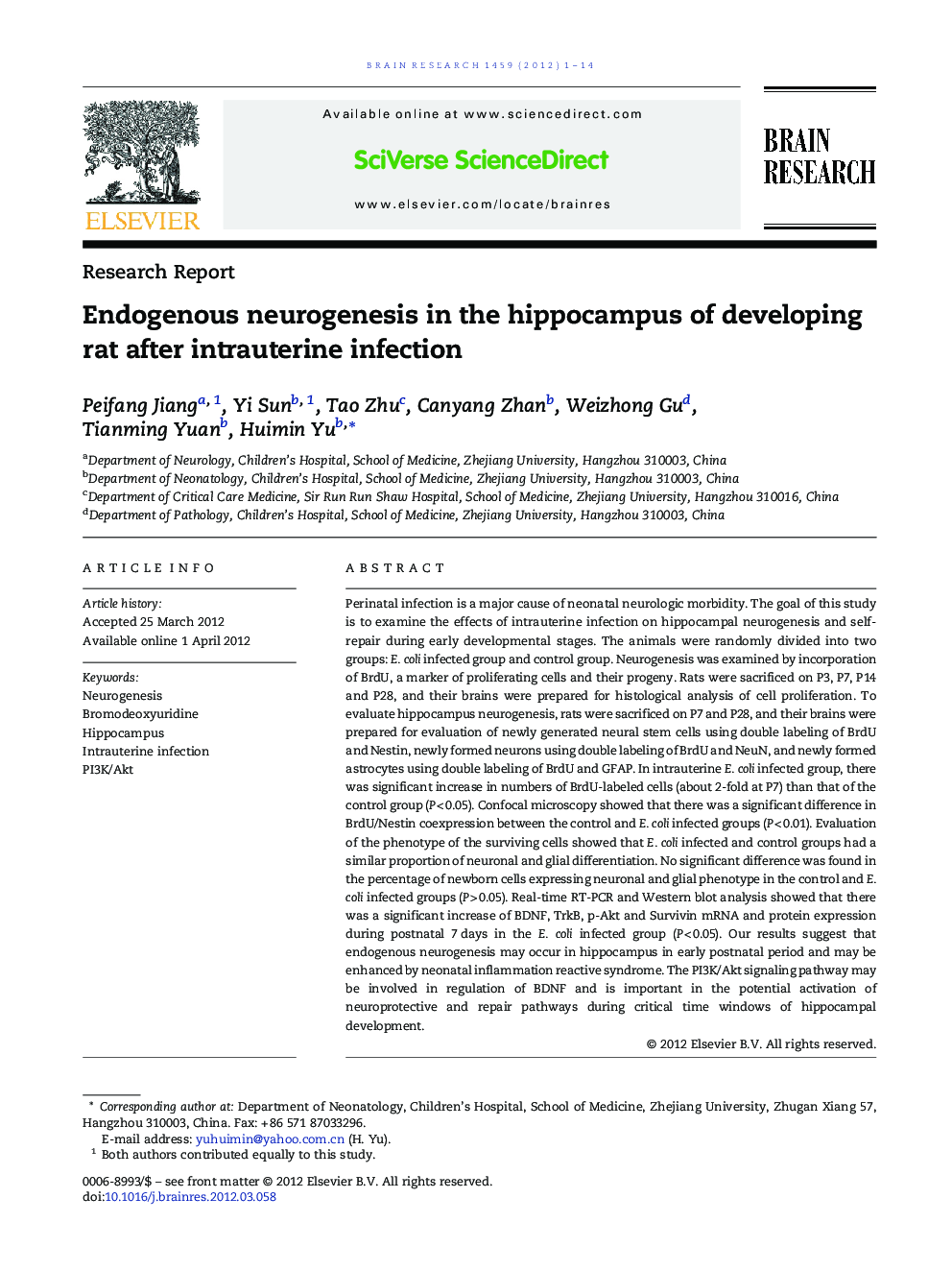| کد مقاله | کد نشریه | سال انتشار | مقاله انگلیسی | نسخه تمام متن |
|---|---|---|---|---|
| 6264337 | 1613980 | 2012 | 14 صفحه PDF | دانلود رایگان |

Perinatal infection is a major cause of neonatal neurologic morbidity. The goal of this study is to examine the effects of intrauterine infection on hippocampal neurogenesis and self-repair during early developmental stages. The animals were randomly divided into two groups: E. coli infected group and control group. Neurogenesis was examined by incorporation of BrdU, a marker of proliferating cells and their progeny. Rats were sacrificed on P3, P7, P14 and P28, and their brains were prepared for histological analysis of cell proliferation. To evaluate hippocampus neurogenesis, rats were sacrificed on P7 and P28, and their brains were prepared for evaluation of newly generated neural stem cells using double labeling of BrdU and Nestin, newly formed neurons using double labeling of BrdU and NeuN, and newly formed astrocytes using double labeling of BrdU and GFAP. In intrauterine E. coli infected group, there was significant increase in numbers of BrdU-labeled cells (about 2-fold at P7) than that of the control group (PÂ <Â 0.05). Confocal microscopy showed that there was a significant difference in BrdU/Nestin coexpression between the control and E. coli infected groups (PÂ <Â 0.01). Evaluation of the phenotype of the surviving cells showed that E. coli infected and control groups had a similar proportion of neuronal and glial differentiation. No significant difference was found in the percentage of newborn cells expressing neuronal and glial phenotype in the control and E. coli infected groups (PÂ >Â 0.05). Real-time RT-PCR and Western blot analysis showed that there was a significant increase of BDNF, TrkB, p-Akt and Survivin mRNA and protein expression during postnatal 7Â days in the E. coli infected group (PÂ <Â 0.05). Our results suggest that endogenous neurogenesis may occur in hippocampus in early postnatal period and may be enhanced by neonatal inflammation reactive syndrome. The PI3K/Akt signaling pathway may be involved in regulation of BDNF and is important in the potential activation of neuroprotective and repair pathways during critical time windows of hippocampal development.
⺠Intrauterine infection may promote cell proliferation. ⺠Intrauterine infection may induce hippocampus endogenous neurogenesis. ⺠PI3K/Akt pathway may modulate neurogenesis after intrauterine infection.
Journal: Brain Research - Volume 1459, 12 June 2012, Pages 1-14